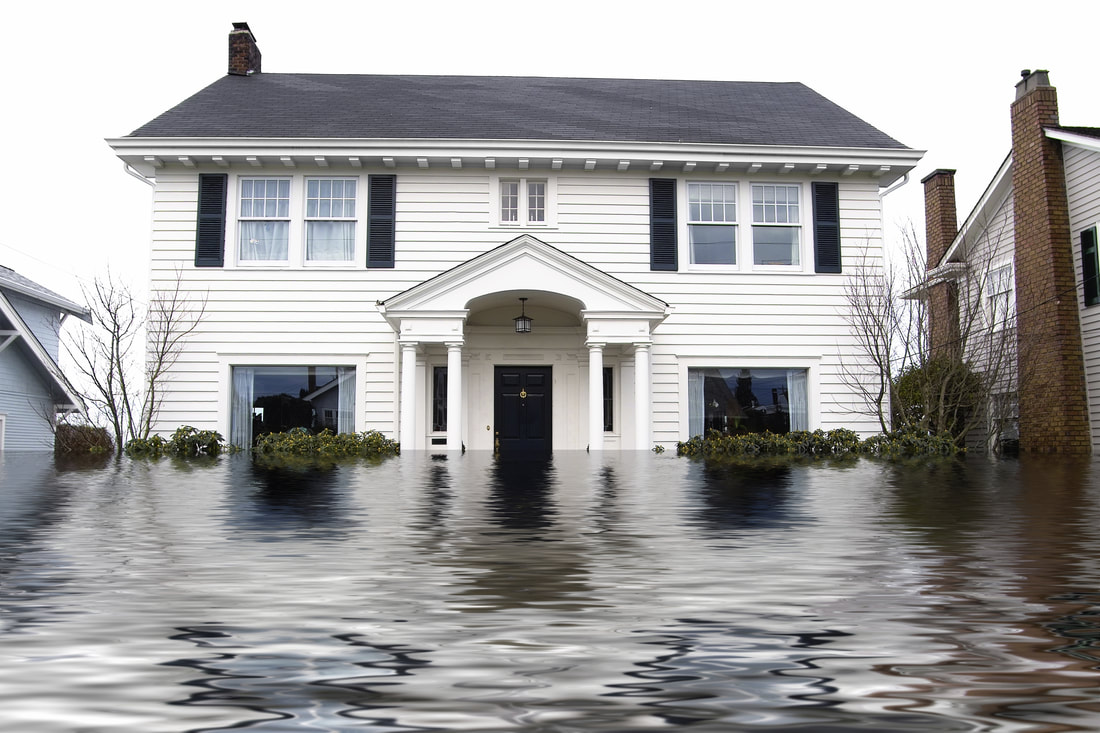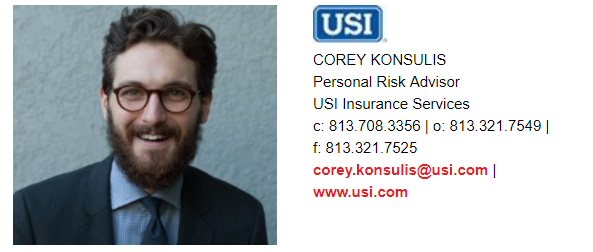|
There are a lot of misconceptions about insurance. Some people feel naked without it. Some would rather have a root canal than think about it. However, everyone I think would agree that in today's society it is a necessary tool in the financial tool kit. This month, I would like to present an interview I did with Corey Konsulis, Personal Risk Advisor for USI Insurance Services on the misconceptions many have about insurance. Corey, tell me a little bit about your background. I grew up in Buffalo, New York and moved to Florida just as I was finishing up High School. I stayed here through College, met my wife, and started my career in the insurance industry. For the past 4 years, I worked with a small independent firm based out of Tampa. I recently made the transition to the brokerage side of the business and work primarily with highly successful families, individuals and family offices. I provide risk management and insurance programs to ensure that their most valuable assets are protected, peace of mind secured, and potential exposures mitigated. What do you enjoy most about your work within the insurance industry? I’m an educator at heart and the most rewarding aspect of what I do is getting to educate clients and professionals about the exposures that are affecting them and their families. I also enjoy solving problems and the complexity that exists within the family office space is rewarding as well. We can get very creative in our programs for family offices and no two are alike. That’s energizing for me! What would you say are some common misconceptions about insurance programs in general? I hear this all the time, “I’m not in a flood zone so I don’t need flood insurance.” That is wildly inaccurate. If you live in Florida, you have flood exposure. Although the bank might tell you that you don’t “need” flood insurance, the reality is, all of Florida is a big swamp and with the rise of urban sprawl, the water must go somewhere. I met with a client last summer, who identified that they didn’t have flood insurance on their primary residence. We placed a policy (very inexpensive), and during Hurricane Irma they experienced severe flood damage. Because we had taken the steps to secure the proper coverage – even though they were told they didn’t need it – they were saved from a $150,000 out of pocket loss. You know Corey, this is very interesting. I myself just visited with a new client in Louisiana who is still recovering from what they call "a thousand year" flood. They spent twelve months out of their home and have totally rebuilt everything in their home from the roof line down. Fortunately, they had flood insurance. Many others in their own family and their neighborhood were not so lucky and are instead trying to reestablish their lives without any kind of financial help. It is sad to see! What is another misconception you see frequently? Another I hear constantly is, “My homeowners policy will cover my valuable jewelry.” Most homeowners policies provide $2,500 in coverage for jewelry, does not cover mysterious disappearance, and is subject to a deductible. Most households need a separate valuable articles policy to ensure they have worldwide coverage for their important and valuable pieces. We have highly creative ways of structuring these programs to ensure robust and comprehensive protection. What would you say are some common misconceptions for family offices or the ultra-wealthy? The list is extensive for these folks. Many assume their excess liability program extends to Board positions they hold for profit or non-profit companies. Unless specifically structured to extend coverage for this exposure, there is no coverage built in to a standard excess liability program. Many also wrongly assume that their homeowners policy will provide coverage for domestic staff on the property in the event an employee is injured or if a lawsuit is filed against them (homeowner). Separate extensions are required for this sort of exposure and programs like Employee Practices Liability and Workers Compensation are highly recommended. Without these, there is no coverage. One of the biggest misconceptions has to do with communication. Many assume their Certified Public Accountant, Estate Planning Attorney, Financial Adviser, and Insurance Broker are all communicating with each other. That is very rarely the case. Due to the lack of strategic planning among these professionals, many clients remain exposed and unaware they are at risk. I’m shocked by this and always push for a consultative approach to risk management that includes all of the professionals associated with the client to ensure that we have left no stone unturned. We’re only as good as the people we surround ourselves with. Is there any advice you would leave my readers with? Be proactive rather than reactive when it comes to your risk management and insurance program. Don’t wait for something tragic to happen to find out that your insurance program was not structured properly. Vet your Insurance Broker and work with someone who has experience with clients like yourself and a team of people to be able to provide robust and ongoing support over the years. Our lives are never static and the same should be said about our insurance and risk management programs. They need to grow and adapt just as we do. Is your current program providing this? Does your current broker have conversations like this with you? Maybe it’s time for a change. Thanks for your time and thoughts Corey. The best way to work with Corey is through your advisor, like InTrust Advisors, but if you would like to contact him directly, here is how: So now it's your turn!
Do you have a story of an insurance misconception that either saved your bacon or cost you money? We would love to hear it! Please feel free to comment below.
0 Comments
Your comment will be posted after it is approved.
Leave a Reply. |




